PR-Agent (now Qodo Merge)
vs. GitHub Copilot
Elevating Pull Request Experiences
Pull Requests
Pull requests (PRs) play a pivotal role in the collaborative landscape of software development, acting as a gateway for code integration and team collaboration. In this realm of constant innovation, two notable tools have emerged to streamline and enhance the pull request process: Qodo Merge and GitHub Copilot. Let’s delve into a comparative exploration of these tools, understanding their features, capabilities, and how they contribute to making pull requests less cumbersome.
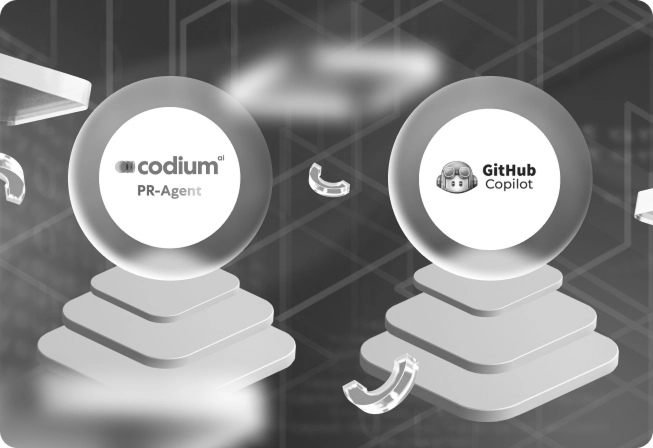

Qodo Merge:
AI-Powered PR Analysis and Feedback
Qodo Merge is a brainchild of innovation, aiming to empower developers with an AI agent that accelerates and refines the PR review process. Leveraging qodo’s expertise, this open-source tool brings forth a suite of functionalities to enhance the entire pull request lifecycle.
Qodo Merge automatically generates comprehensive PR descriptions, encompassing essential details like name, type, summary, and code walkthrough.
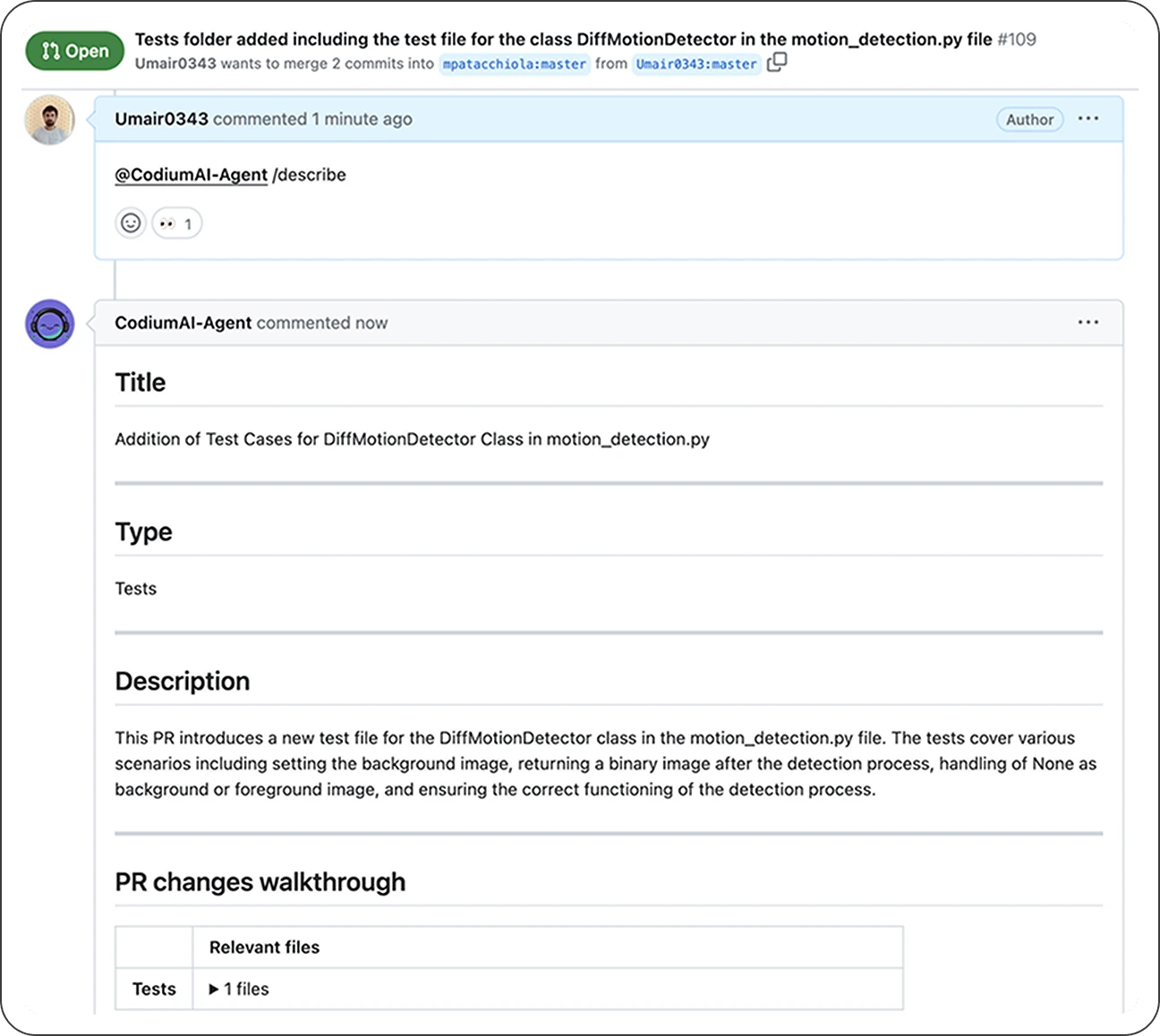
The tool offers feedback on the core theme of the PR, relevant tests, security issues, and various suggestions to enhance PR content.
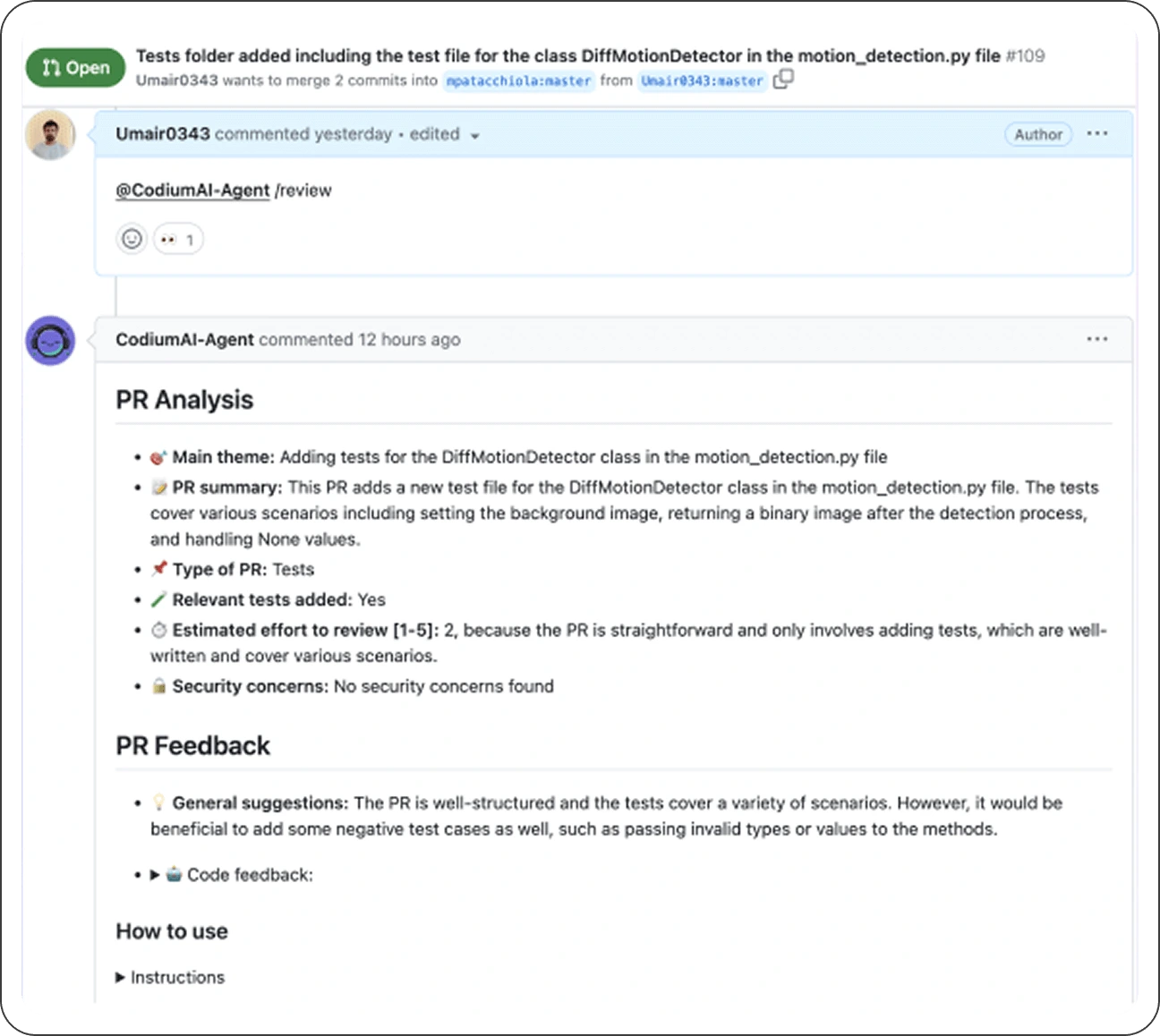
The Qodo Merge goes beyond conventional analysis by answering free-text questions about the PR, fostering better communication within development teams.
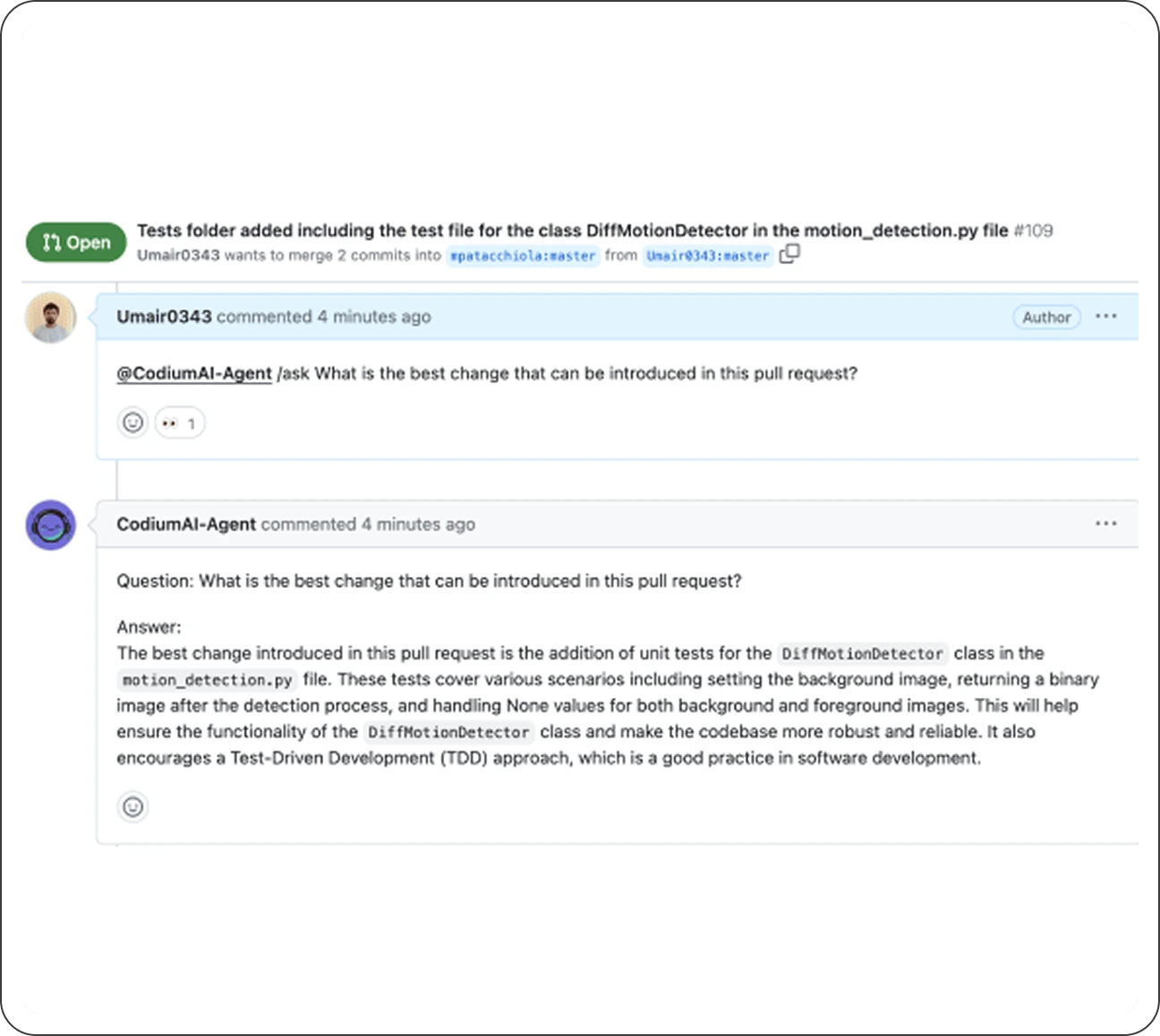
With a keen eye for code improvement, Qodo Merge provides committable code suggestions, aiding in maintaining PR integrity, and will soon incorporate meaningful tests.
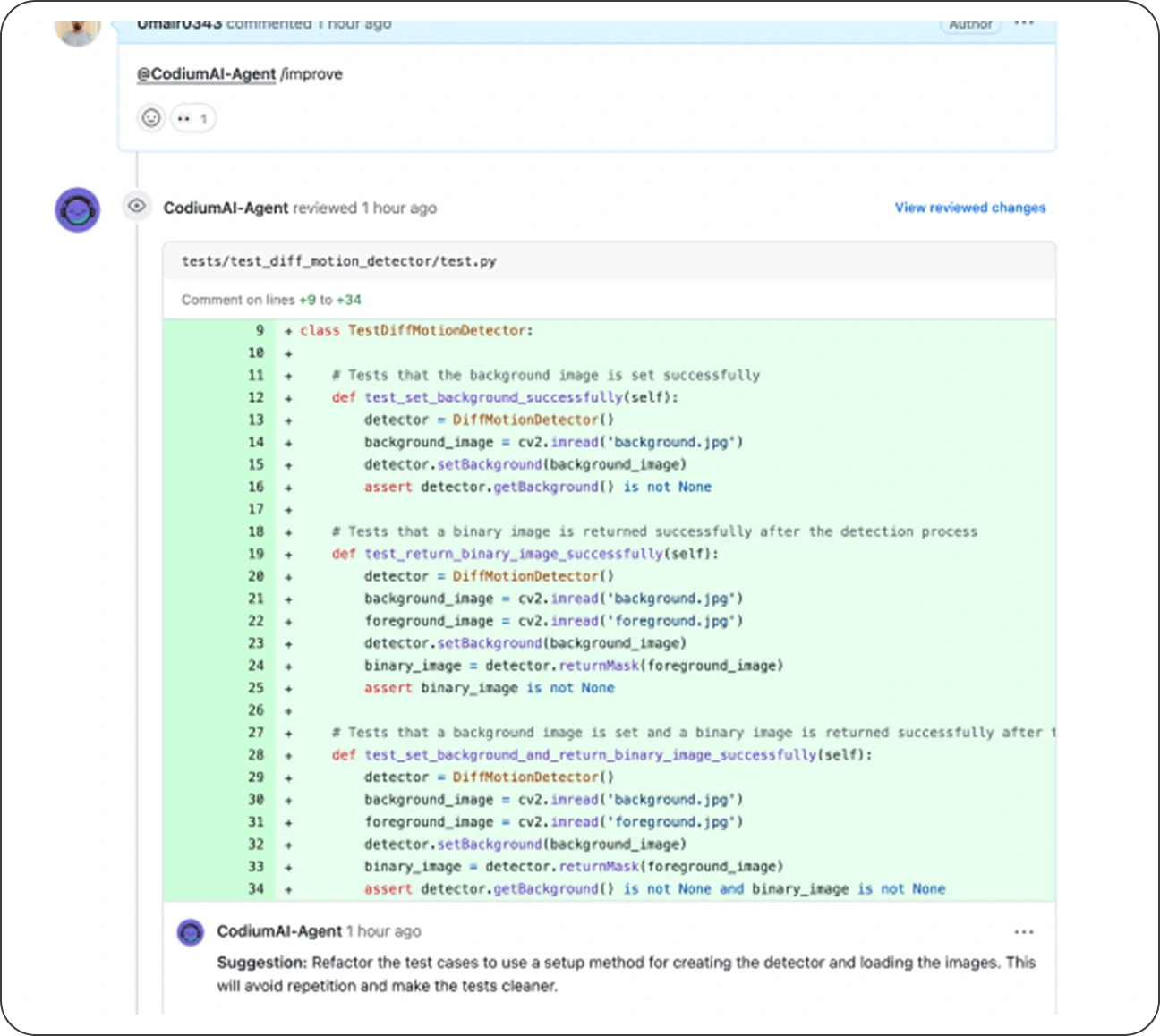
Here is the suggestion provided by Qodo Merge for the code shown the Code Suggestions tab: “Refactor the test cases to use a setup method for creating the detector and loading the images. This will avoid repetition and make the tests cleaner.
This suggestion is very helpful as it makes the test cases cleaner. We can also easily commit to this suggestion by clicking the “Commit suggestion” button, as shown in the screenshot attached.
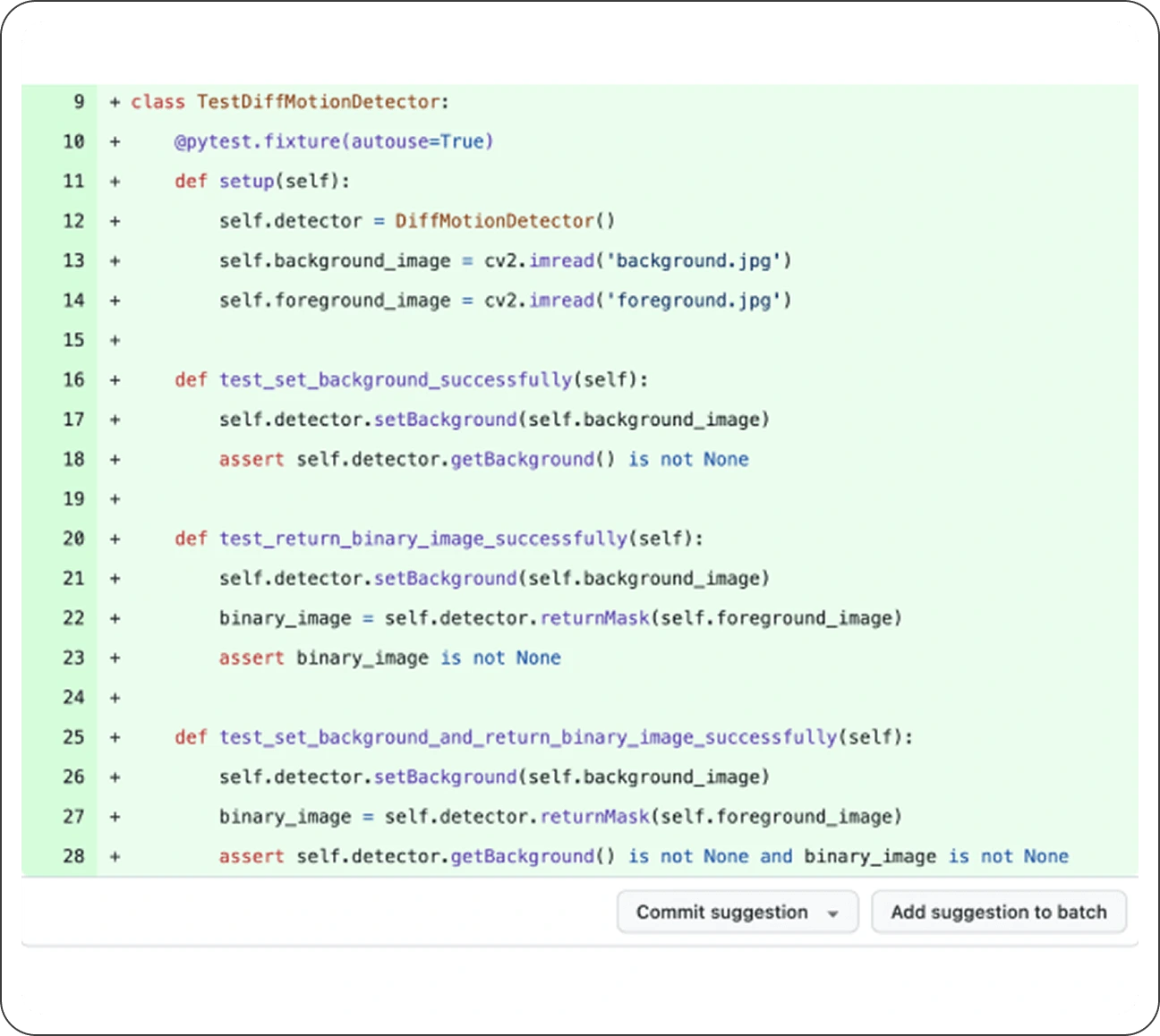

Features Overview
Qodo Merge offers extensive pull request functionalities across various git providers:
As of 9/2023, the information in this comparison table is up-to-date to the best of our knowledge. However, the industry is rapidly evolving, and there may be updates that we have not yet captured. We strive for accuracy and fairness; if you have any updates or corrections, even if it shows a competitor in a more favorable light, we encourage you to share them with us at [email protected].
Enhancing Code Quality with AI
The Gentle Nudge for Tests
Addressing the common refrain of “OK, but please add tests,” GitHub Copilot goes beyond mere suggestions.
Its AI prototype identifies changes in PRs that may lack tests and provides concrete suggestions for developers to build on or implement directly. This proactive approach aims to prevent an increase in project test debt.
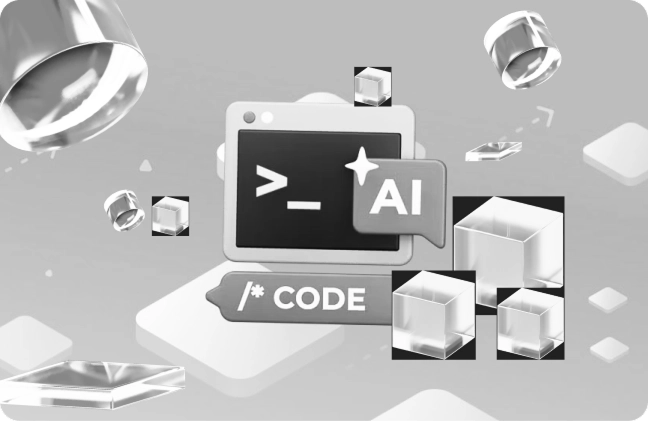

Streamlining
PR Interactions with AI
Ghost Text for Seamless Suggestions
Copilot users are accustomed to the subtle brilliance of “ghost text” suggestions while typing in their code editors. GitHub is extending this user experience to the pull request space.
Developers can now receive inline suggestions for their PR descriptions as they type, ensuring a fluid and intuitive interaction with Copilot.
AI in Issue Resolution
Facing a significant issue, like replacing TensorFlow with PyTorch? GitHub Copilot steps in with a prototype that automatically describes how to solve the issue and suggests changes needed to make the transition.
From issue identification to code suggestion and PR creation, Copilot is an invaluable guide.
AI-Powered Code Review
Code review is a significant time investment. GitHub Copilot seeks to optimize this process by using AI to describe changes in a pull request and even review the code.
The AI makes actionable suggestions for improvement, providing a valuable tool to reduce the time spent in the review cycle.
AI-Powered PR Completion and Repair
GitHub Copilot’s ambition extends to automating more aspects of the PR process.
From completing PRs based on indicative edits to using AI to fill in the gaps and reduce the number of switches during back-and-forth interactions, Copilot aims to enhance the overall efficiency and fluidity of the PR workflow.
AI-Powered Review Responses
Encountering nit-picking on your changes? Copilot envisions an AI-powered future where it can auto-generate changes in response to requests for documentation addition or additional tests.
While this may not replace human reviewers entirely, it promises to expedite and augment the review process.
Ghost Text for Seamless Suggestions
Copilot users are accustomed to the subtle brilliance of “ghost text” suggestions while typing in their code editors. GitHub is extending this user experience to the pull request space.
Developers can now receive inline suggestions for their PR descriptions as they type, ensuring a fluid and intuitive interaction with Copilot.
GitHub Copilot: Revolutionizing Code Creation in Pull Requests
GitHub Copilot, the collaborative masterpiece of GitHub and OpenAI, has set its sights on revolutionizing the pull request (PR) experience. With a vision to make PRs magical, Copilot introduces a suite of innovative features designed to streamline the entire PR lifecycle, from description creation to codecompletion and review responses.
Multiple Commands
Two Commands
All Git Platforms
GitHub Only
Open Source
No Open Source
Available
Waiting List
Choosing the Right Pull Request Tool for Your Workflow
Offers a wide range of features, including automatic PR description generation, PR review feedback, code suggestion, question answering, and test suite generation.
Currently limited to suggesting PR descriptions based on code changes.
Open-Source and available on GitHub.
Not Open-Source.
Available for individual developers and teams.
Currently in private beta with a waiting list.
Yes, with limited features.
No, a subscription is required.
Ideal for teams seeking a dedicated tool for PR analysis and feedback.
Suited for developers looking for real-time code assistance throughout their coding journey.
Offers a comprehensive set of features catering specifically to the PR lifecycle.
Enhances code creation during the coding phase, indirectly influencing pull requests.
Open-source nature encourages community collaboration and customization.
Integrates seamlessly into popular code editors, providing a familiar environment.
Conclusion
In the realm of pull requests, the choice between CodiumAI’s PR-Agent and GitHub Copilot depends on your development team’s specific needs and preferences. PR-Agent excels in providing a tailored solution for PR analysis and feedback, while Copilot focuses on revolutionizing code creation with its powerful autocompletion capabilities. Ultimately, both tools contribute to the evolution of collaborative coding practices, aiming to make pull requests and code creation more intuitive, efficient, and enjoyable for developers.
Code & Merge with confidence
By analyzing code and generating comprehensive test suites, we save developers valuable time and effort. Our aim is to empower developers, foster a strong community, and enhance our offerings for teams and enterprises.